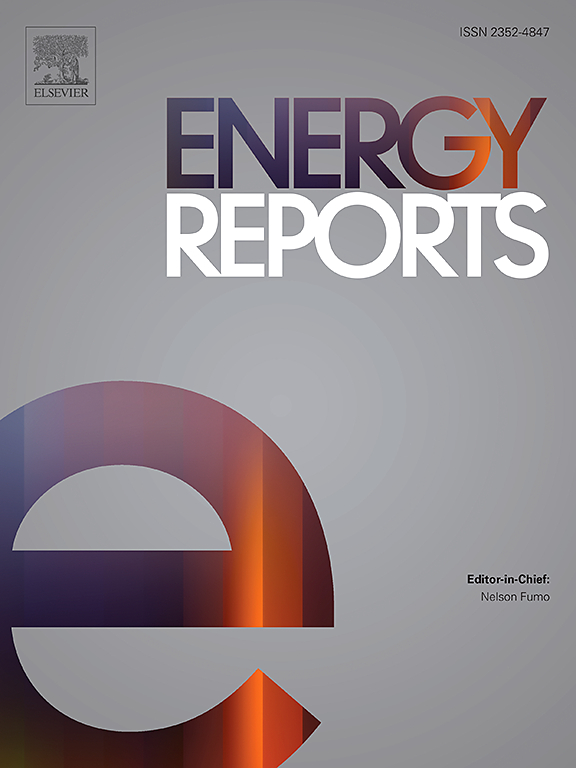Empowering energy sustainability: A cutting-edge ensemble network for precise power forecasting
IF 4.7
3区 工程技术
Q2 ENERGY & FUELS
引用次数: 0
Abstract
An appropriate forecasting model for electrical energy generation and consumption is considered a key demand of modern power management systems. Therefore, it has attracted considerable attention from researchers to develop efficient and precise energy forecasting methods. Energy forecasting for residential buildings and power generation sites is vital in energy future planning and convenient management. Mainstream energy forecasting methods including conventional Machine Learning (ML) and Deep Learning (DL) methods contain high levels of non-linearity between input and output which require more improvement with respect to robustness, forecasting performance, and generalization ability in terms of effective energy generation and consumption forecasting. To address these problems, this paper presents a hybrid forecasting model, integrating a modified Convolution Neural Network (CNN) and Gated Recurrent Units (GRU) followed by an attention mechanism. In this architecture, CNN is designed to extract spatial information in historical input data while GRU emphasizes temporal information sequentially. Additionally, the extracted features are then fed to the Soft Attention (SA) module, aiming to acquire the dominant patterns for final forecasting. To ensure a fair evaluation, this study conducted extensive experiments comparing the proposed CNNGRU-SA model with several competitive techniques over both power generation and consumption benchmarks, aiming to effectively determine and assess their performance. Overall, the experimental results justify that the proposed network achieved higher performance and outperformed across competitive networks over MSE, MAE, and RMSE. Hence, the proposed framework enhances the development of intelligent energy systems, supporting more effective and efficient power management within smart grid infrastructures.
增强能源可持续性:用于精确电力预测的尖端集成网络
一个合适的电力生产和消费预测模型被认为是现代电力管理系统的关键需求。因此,开发高效、精确的能源预测方法已引起研究人员的广泛关注。住宅建筑和发电场所的能源预测是未来能源规划和管理的重要内容。主流的能源预测方法,包括传统的机器学习(ML)和深度学习(DL)方法,在输入和输出之间包含高度的非线性,需要在鲁棒性、预测性能和有效的能源生成和消费预测的泛化能力方面进行更多的改进。为了解决这些问题,本文提出了一种混合预测模型,该模型结合了改进的卷积神经网络(CNN)和门控循环单元(GRU),然后引入了注意机制。在该架构中,CNN旨在从历史输入数据中提取空间信息,而GRU则强调时序信息。此外,提取的特征然后被馈送到软注意(SA)模块,旨在获得最终预测的主导模式。为了确保公平的评估,本研究在发电和消费基准上对所提出的CNNGRU-SA模型与几种竞争技术进行了广泛的实验比较,旨在有效地确定和评估其性能。总体而言,实验结果证明,所提出的网络在MSE、MAE和RMSE的竞争网络中取得了更高的性能,并且表现优于竞争网络。因此,拟议的框架加强了智能能源系统的发展,支持智能电网基础设施内更有效和高效的电力管理。
本文章由计算机程序翻译,如有差异,请以英文原文为准。
求助全文
约1分钟内获得全文
求助全文
来源期刊

Energy Reports
Energy-General Energy
CiteScore
8.20
自引率
13.50%
发文量
2608
审稿时长
38 days
期刊介绍:
Energy Reports is a new online multidisciplinary open access journal which focuses on publishing new research in the area of Energy with a rapid review and publication time. Energy Reports will be open to direct submissions and also to submissions from other Elsevier Energy journals, whose Editors have determined that Energy Reports would be a better fit.
 求助内容:
求助内容: 应助结果提醒方式:
应助结果提醒方式:


